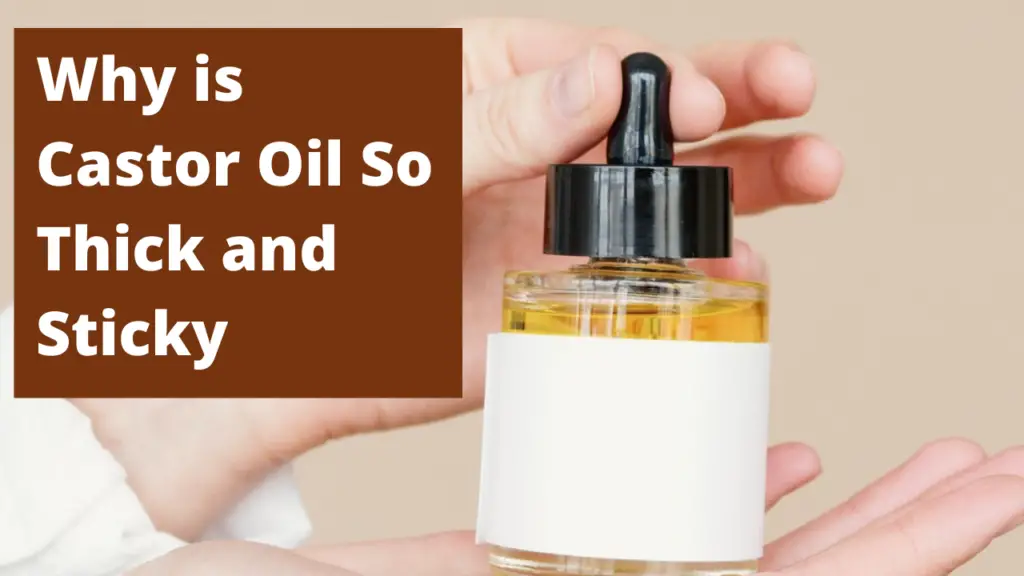You might have heard that castor oil is an incredible home remedy for hair health – but why is it so sticky?
It’s easy to assume that thick, sticky castor oil is past its best, but actually, this is just the makeup of the oil. Castor oil is a monounsaturated fatty acid, and its consistency is naturally very thick. This can make it very difficult to apply to your hair.
How to make castor oil less thick
To reduce the thickness and stickiness of castor oil, you’ll need to dilute it with another oil, known as a carrier oil. It’s recommended that you dilute castor oil at a ratio of 1:1 – so the amount of castor oil is equal to the oil it is diluted in. This should retain the potency of castor oil while reducing its stickiness.
What to mix with castor oil to make it less thick?
Coconut oil is a great choice for diluting castor oil. This oil has its own skin and hair health properties – it can be used as a makeup remover and moisturizer, and can also reduce dandruff and condition hair.
You could also mix castor oil with water to reduce its thickness and stickiness.
Why is castor oil bad for your hair?
There’s a lot of contrasting information online about whether castor oil is actually good for your hair or not. Some people swear by castor oil for their hair health, while others warn against using it.
Using castor oil diluted in a carrier oil is a much more effective solution than using pure castor oil on its own. The oil can be very sticky and heavy on its own, which may cause matting and clumping in your hair.
If you use castor oil frequently, a build-up of the oil may cause permanent damage to your hair. That’s why, if you’re going to use castor oil, you should use it no more than once a week week.
Don’t let this put you off using castor oil altogether, however. When applied properly, it can be a beneficial aspect of your haircare routine.
How to apply castor oil to hair
To apply castor oil for hair growth benefits, massage a couple of drops onto your hair’s scalp. To prevent hair breakage and improve texture, you could also apply castor oil to your ends and mid-section. Remember to mix the castor oil with a carrier oil before you apply it on your hair.
You could also use castor oil as a hair mask. Mix the oil with a carrier oil, then apply all over your hair and let it sit for up to two hours. It’s a good idea to cover your head with a towel or a shower cap after applying the oil to prevent it from dripping onto your clothes and furniture.
Adding castor oil to shampoo
You may choose to add castor oil to your shampoo. In this case, a couple of drops are more than enough. This means you’ll benefit from castor oil’s hair-strengthening properties without the stickiness you’d get from using the oil on its own.
Another alternative is to add diluted castor oil to your hair before shampooing, which will prevent the shampoo from stripping too much sebum from your hair. The result is that your hair will be naturally softer and moisturized.
How to get castor oil out of hair
If you’ve only discovered this article too late, and you’re currently dealing with a castor oil overload in your hair, don’t panic – you can get it out in most cases.
The simplest, safest solution is to simply let the oil dry completely in your hair. Wrap your hair in a towel to absorb as much oil as possible. If you can, leave the oil overnight, placing a towel on your pillow to prevent damage to your pillowcase. By the next morning, you should find it easy enough to wash the oil out of your hair.
If you’ve applied too much castor oil to consider this solution, or you just want to get the oil out of your hair as fast as possible, try washing it out with a pH-balanced shampoo. This is the more aggressive option, but it should prove effective.
Remember, castor oil is healthy to hair when diluted, but in large, undiluted quantities, it may do more harm than good.
